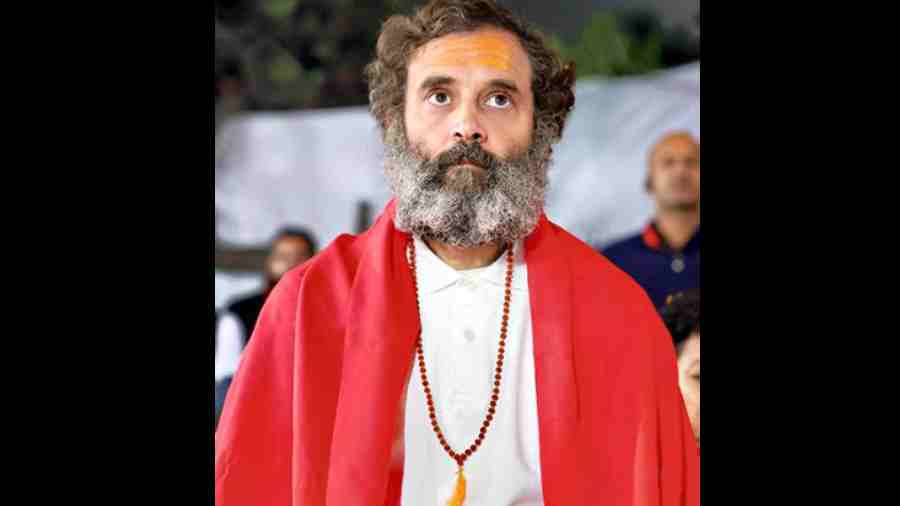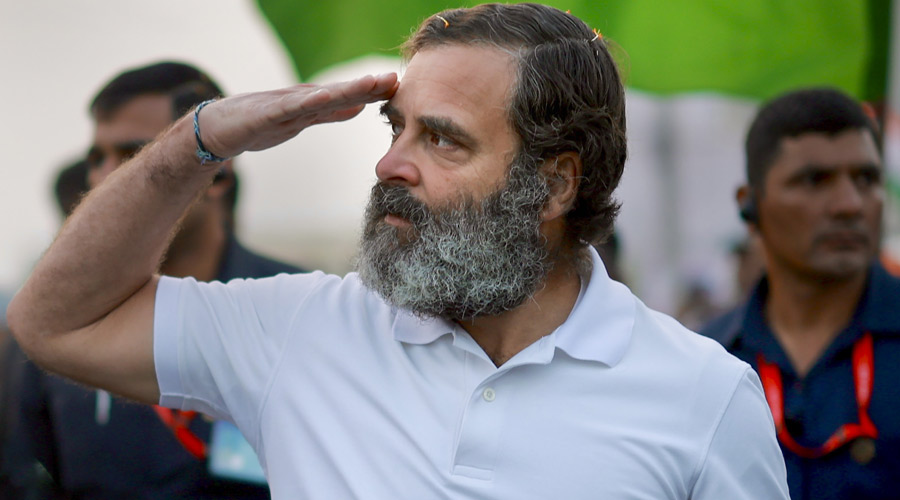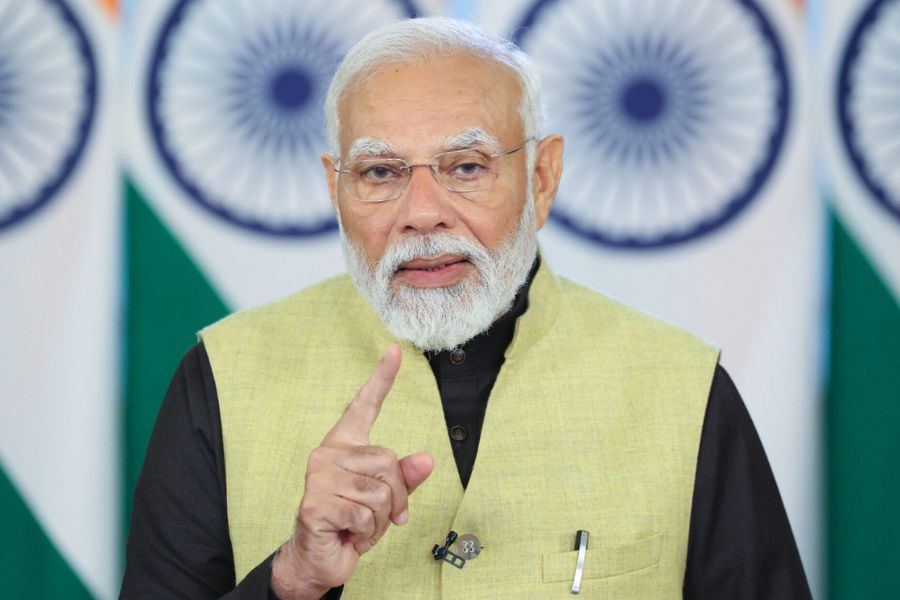Rahul Gandhi on Sunday declared that he was not worried about his “image” and knew what exactly he had to do irrespective of the projections about him by his political rivals and the media.
The former Congress president, a victim of vicious propaganda that sought to portray him as “Pappu” and an incompetent politician, had earlier spoken about a conspiracy to destroy his image. But on Sunday, he went a step further by insisting that such false projections had lost relevance now. He appeared convinced that the truth would manifest itself.
Asked at a media interaction in Haryana about the image Rahul would gain after the Bharat Jodo Yatra, he said: “Rahul Gandhi aapke dimag mein hai, main maar diya usko. Woh hai hi nahin, mere mind mein hai hi nahin. Gaya woh. Gaya. Jis vyakti ko aap dekh rahe ho, woh Rahul Gandhi nahin hai. Woh aapko dikh raha hai (Rahul Gandhi is in your mind; I have finished him off. He doesn’t exist. Not in my mind. He is gone. The person you are seeing is not Rahul Gandhi. You presume he is Rahul Gandhi).”
As the response triggered amusement among reporters, he rubbed the message in: “Baat nahi samjhe? Hindu dharm ko padho baat samajh mein aa jayegi.”
Rahul added: “Shivji ko padho. Hairan mat ho. Rahul Gandhi aapke dimag mein hai. Rahul Gandhi BJP ke dimag mein hai, mere dimag mein hai hi nahin (You didn’t get the message? Study the Hindu religion, try to understand Lord Shiva, you will know. Don’t be surprised. Your mind and the BJP’s mind are obsessed with Rahul Gandhi, my mind isn’t).”
As the reporters chuckled, surprised at the apolitical response, Rahul declared: “Image ka mujhe kuchh lena dena nahin hai. Image mein mera kuchh interest nahin hai. Jo image aap rakhna chahte ho, rakh do. Acchhi rakhni hai rakh do, kharab rakhni hai rakh do. Woh aapka hai mere nahin hai (I am not concerned about my image. I have no interest in image-building. Whatever you want to project — good or bad — feel free to do so).”
He summed up: “Koi farak nahin padta mujhe, mujhe apna kam karna hai (It doesn’t make any difference to me. I have my work to do).”
Responding to a similar question on his image at the start of the media conference, he had said: “You are the judge, jury and executioner. You decide. If you can bring in some truth also, that will be good. ”
At another media conference a few days ago, he had talked of “abandoning Rahul Gandhi” when asked about his image.
While Rahul has a tendency to deal with issues in spiritual and philosophical terms, he was doubtless sending out a political message through his assertions about killing the “Rahul Gandhi” that the world knows.
What he is subtly suggesting is that the Rahul Gandhi born into a privileged family that gave India three Prime Ministers is gone and a new self has arisen through renunciation and struggle.
It is a political positioning against the politics of entitlement, a rebuttal to the barbs of dynastic privilege. The message is that the Rahul Gandhi who could have become Prime Minister in 2009 or a few years later has not only relinquished the Congress president’s post but embarked on the toughest journey ever undertaken by any politician in the country. He has reinvented himself through “tapasya”, through the Gandhian approach of suffering that is ethical and edifying.
Rahul hasn’t described his “tapasya” as a gesture of greatness, constantly arguing that the toiling millions in India do the same every day.
On Sunday, too, he said: “There is not a single farmer, a single labourer who has walked less than me. But we don’t respect their tapasya.”
He has been using different metaphors to explain the existing economic disparities and trying to restore the dignity of labour.
The Bharat Jodo Yatra has woven a powerful narrative about disparities, the sufferings of the masses and the Narendra Modi government’s pro-rich policies.
In addition to reaching out to a religious populace by saying that people’s “tapasya” is not being respected, Rahul has bluntly put the message across via statistics — that 100 people control over 50 per cent of the country’s wealth and 90 per cent of corporate are cornered by 20 companies.
The Kanyakumari-to-Kashmir walk has created an impression that Rahul wants to experience the sufferings of the masses. Standing in the rain or wearing a T-shirt in extreme cold has been part of that mission, suffering being an integral component of tapasya.
Right-wing trolls on Saturday flagged a thermal that was peeping out of the T-shirt, insinuating that the tapasya was fake. They obviously couldn’t declare that the walk was fake.
Rahul appeared at Sunday’s news conference with an unbuttoned T-shirt that clearly showed the thermal. He confessed that the controversy around his T-shirt had angered his mother, who had scolded him for wearing only a T-shirt.
A new image might already be crystallising: a strong, determined person who can be scolded by his mother and who embraces everybody and demonstrates the virtues of tolerance and harmony, not dominance and coercion.












